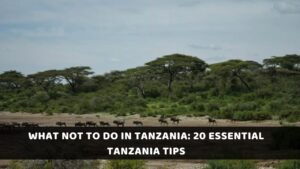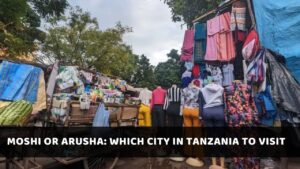Tourism brings immense economic benefits, contributing 10% of global GDP. But sadly, local economies don’t always reap the full rewards of tourist spending. This phenomenon is called economic leakage.
As responsible travelers, it’s crucial we understand how tourism leakage happens so we can make informed decisions. Read on to learn what tourism leakage is, what causes it, and most importantly – how travelers can help keep money in local communities.
What is Tourism Leakage?

Tourism leakage refers to money spent by tourists in a destination that leaks out or flows out of the local economy into foreign economies.
Instead of remaining in the visited country to circulate and strengthen the local economy, tourism revenue is lost offshore and benefits foreign companies and shareholders.
According to the UN’s Ocean Atlas, as little as 5% of money spent by tourists in developing nations remains in the local economy. The rest is lost to leakage.
Why Does Tourism Leakage Matter?
Tourism leakage directly counteracts the core economic benefits that destinations aim to reap from tourism.
Money flowing offshore means fewer local jobs created, weaker infrastructure development, and reduced economic prosperity for residents. It especially disadvantages developing countries.
To fully leverage tourism for poverty alleviation and sustainable growth, destinations must minimize leakage and keep money circulating locally.
Examples of Tourism Leakage
There are endless examples of how tourism dollars flow offshore, including:
- Booking accommodation owned by a foreign corporation
- Eating at a restaurant chain like McDonalds
- Buying imported food and beverages
- Using tour operators headquartered abroad
- Flying on a foreign-owned airline
In essence, money spent with multinational chains, imported goods and foreign-based companies often leaks out.
What Causes Tourism Leakage?
There are several key factors that drive tourism leakage:
Foreign Investment
Many destinations rely on foreign investment to develop tourism infrastructure like hotels, airports and attractions. Multinational hotel chains account for over 50% of hotel rooms in Africa.
Foreign-owned businesses repatriate profits to their shareholders abroad. This export leakage denies local reinvestment.
Importing Goods and Services
Destinations often import goods to meet tourist desires, from food and drink brands to luxury amenities. Importing results in import leakage.
Services like banking, insurance and transports may be sourced abroad. Staff like accountants may even be foreign imports.
All-Inclusive Resorts
All-inclusive resorts are notorious for leakage. Guests pay upfront and never need to spend money in the local economy for food, drinks or activities. Leakage approaches 80% in Caribbean resorts.
Foreign Ownership Along Supply Chains
Tourists rarely interact directly with the end provider. Foreign tour operators, travel agencies, airlines and other intermediaries control the supply chain. Money passes through multiple foreign hands before reaching local providers.
Types of Tourism Leakage
There are two major forms of leakage in travel and tourism:
Import leakage – When a destination must import goods and services to meet tourist demand, including food, drinks, equipment, banking services and more.
Export leakage – When foreign-owned businesses operating in a destination repatriate their profits to their country of ownership.
Both export and import leakage divert money offshore away from the local economy.
How Much Money is Lost to Tourism Leakage?
Unfortunately, significant portions of tourist spending leak out of local economies:
- Up to 80% in Caribbean all-inclusive resorts
- 70% in Thailand
- 55% in the Gambia
- 40% in India
The UN estimates up to 55% leakage in developing countries, and 40% globally.
The more a destination depends on imported goods to meet tourist desires, and foreign ownership of infrastructure, the higher the leakage.
Why Local Ownership Matters
When a local resident owns a business, the money earned stays within the community. They reinvest profits to grow the business, spend wages locally, and contribute to community development.
Foreign investors repatriate profits to their shareholders abroad. Though infrastructure may develop faster with foreign investment, the long-term benefits flow offshore.
Prioritizing local ownership across the tourism supply chain ensures money circulates locally, stimulating inclusive economic growth.
How Tourists Can Help Reduce Tourism Leakage
While the onus is on policymakers to develop a sustainable, locally-beneficial tourism sector, travelers play an important role too.
Here are 5 tips to reduce your personal tourism leakage:
1. Spend money at local businesses – Eat local cuisine at family restaurants, stay at locally owned hotels, take tours by community guides. Avoid spending at foreign chains.
2. Travel beyond hotspots – Venture beyond heavily touristed areas into small towns and communities where more tourism revenue stays local.
3. Buy local goods – Shop at local markets and artisan shops. Purchase locally made handicrafts and products.
4. Use local transit – Take buses, trains, tuk tuks and taxis instead of multinational rideshare apps and tour buses.
5. Ask questions – Ask who owns accommodations, restaurants and tour companies. Seek local options.
Making mindful decisions as a traveler supports grassroots businesses and reduces money lost offshore.
Ways Destinations Can Reduce Tourism Leakage
While travelers play a role, destinations must take a strategic approach to maximizing tourism’s local economic impact. Policies to reduce leakage include:
- Providing incentives and support to help locals develop tourism businesses
- Creating local supply chains and sourcing food, beverages and supplies from local producers
- Diversifying offerings beyond mass tourism to attract higher value travelers
- Marketing and promoting locally-owned tourism businesses
- Using tax revenues from tourism to strengthen infrastructure and communities
- Closely regulating foreign businesses, including profit repatriation and sourcing
- Collaborating across government, private sector and communities to maximize local benefits
With smart planning and policy, destinations can capture tourism dollars, stimulate broad-based economic growth, and deliver more value to residents.
Final Thoughts on Tourism Leakage
Economic leakage is an immense threat that prevents developing countries from harnessing tourism’s full potential.
While travelers play a role in reducing leakage, solving this complex issue ultimately requires leadership by government, industry and communities.
By better understanding the causes and consequences of tourism leakage, we as mindful travelers can advocate for and support local-first tourism. Demanding sustainable tourism ensures our adventures enrich rather than exploit destination communities.
How do you try to maximize your positive local economic impact when you travel? Share your tips and thoughts below!
FAQs
What is tourism leakage?
Tourism leakage refers to money spent by tourists that flows out of the local economy into foreign economies, rather than remaining to benefit the local destination.
How does tourism leakage happen?
Leakage occurs when tourists spend money with foreign-owned businesses, imported goods and services, or on all-inclusive packages where money goes to international companies.
Why is tourism leakage problematic?
Leakage deprives local economies of money that could support jobs, infrastructure, and community development. It reduces tourism’s economic benefits.
What are the main types of tourism leakage?
The two main forms are import leakage, when goods are imported to meet tourist demand, and export leakage, when foreign companies repatriate profits.
How can travelers help reduce tourism leakage?
Ways to help include spending money at local businesses, avoiding foreign chains, traveling beyond hotspots, using local transit, and asking who owns tourism companies.


























2 thoughts on “What is Economic Leakage in Tourism? Understanding How Tourist Dollars Can Leave Local Economies”